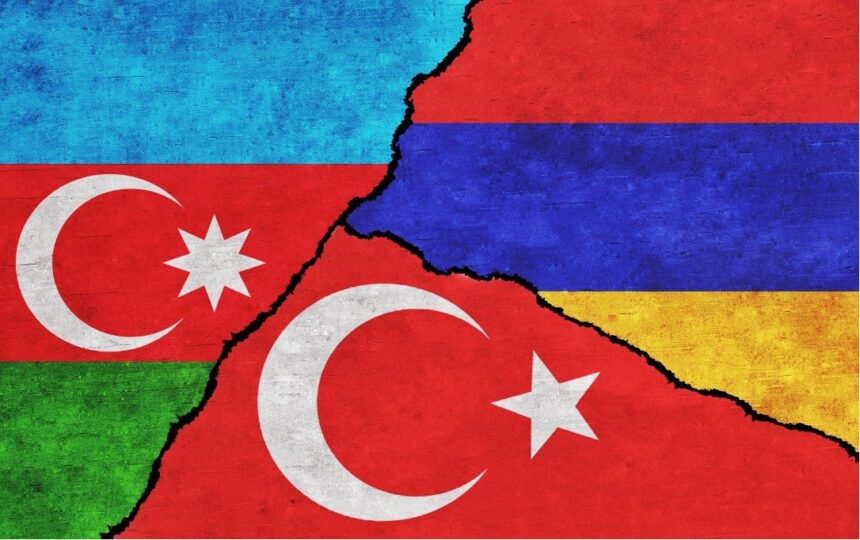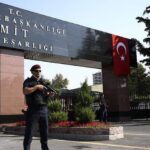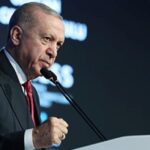October 2024 – Istanbul, Turkey
Armenia has concluded the construction and technical setup of the Margara border checkpoint along its border with Turkey, a significant development for regional diplomacy and cooperation. This marks a major step in the normalization of relations between the two countries. The announcement was made by Armenian Foreign Minister Ararat Mirzoyan at the third meeting of the 3+3 regional consultative platform in Istanbul. This forum is designed to promote collaboration among the South Caucasus countries and regional powers.
In addition, Mirzoyan verified that Armenia and Turkey have consented to evaluate the technical requirements required to reopen the Gyumri-Kars railway, a critical transport link that has been inactive for decades. This initiative is in addition to the previous agreements between the two nations to recommence direct flights and remove restrictions on air cargo trade. Mirzoyan underscored the potential for improved regional connectivity during the meeting by noting that the Gyumri-Kars railway between Armenia and Turkey, in conjunction with the railway connection between Armenia and Azerbaijan, will establish an effective connection between the Persian Gulf, the Black Sea, the Caspian Sea, and the Mediterranean.
These initiatives are part of a larger endeavour to establish enduring peace and cooperation in the South Caucasus, particularly in the wake of the 2020 Nagorno-Karabakh war. Russian Foreign Minister Sergei Lavrov disclosed during the meeting that Russia, Turkey, and Iran have extended an offer to support Armenia and Azerbaijan in the formulation of a bilateral peace agreement, which is consistent with these objectives. During Russian-mediated negotiations between 2021 and 2023, Lavrov underscored that the foundation for this peace process was established, which included discussions on border delimitation and the reopening of trade routes.
Nevertheless, Armenia’s stance on this proposition remains uncertain. In recent months, Yerevan has demonstrated a reluctance to accept Russian mediation, with Prime Minister Nikol Pashinyan advocating for direct negotiations with Azerbaijan. This method has been met with criticism from domestic opposition figures, who contend that it could lead to precipitous concessions to Azerbaijan. Rather than explicitly addressing the peace treaty discussions, Mirzoyan prioritized regional infrastructure projects during the meeting, underscoring the significance of mutual respect for sovereignty and jurisdiction in all transport agreements.
Given these developments, there is an increasing likelihood that Prime Minister Pashinyan may consent to the “Middle Corridor” in a separate agreement with Turkish President Recep Tayyip Erdoğan, according to political circles. The Syunik region of Armenia, which is frequently referred to as the Zangezur corridor, would serve as the conduit between Turkey and Azerbaijan. Russia views such an agreement as problematic, as it favours a more comprehensive reopening of regional highways, as delineated in the trilateral agreement of November 9, 2020.. The Zangezur corridor is not specifically identified as a primary focus in this agreement, which discusses the unblocking of transport routes throughout the region.
Kremlin spokesman Dmitry Peskov verified that the Zangezur corridor issue was discussed during half-hour bilateral meetings following recent meetings between Russian President Vladimir Putin, Pashinyan, and Azerbaijani President Ilham Aliyev in Moscow on October 8. The Russian Foreign Ministry spokesperson, Maria Zakharova, recently clarified that Moscow does not use the term “Zangezur corridor,” which adds to the complexity. This implies that Russia is cautious about the initiative in question.
Armenia and Turkey are making progress in their efforts to repair their relationship; however, tensions between Armenia and Azerbaijan persist. Jeyhun Bayramov, the Azerbaijani Foreign Minister, has reiterated Baku’s demand for changes to Armenia’s constitution as a prerequisite for peace. This stance has exacerbated the already precarious negotiations.
The meeting in Istanbul is a component of the 3+3 regional consultative platform, which was established in December 2021. This platform unites Armenia, Azerbaijan, Georgia, Turkey, Russia, and Iran to deliberate on regionally significant matters. Nevertheless, Georgia has maintained its pledge to boycott the platform as a result of its ongoing territorial disputes with Russia.
The geopolitical landscape of the South Caucasus is being transformed by the changing dynamics between Armenia, Turkey, and Azerbaijan. The completion of the Margara checkpoint and the reopening of the Gyumri-Kars railway are considered to be critical stages in Armenia’s endeavours to improve regional trade routes. These developments have the potential to transform the country into a critical transit hub that connects Asia and Europe. In the interim, the peace negotiations between Armenia and Azerbaijan continue to be fraught with challenges. However, the strategic significance of achieving enduring peace in the region is underscored by the involvement of regional powers such as Russia, Turkey, and Iran.
These developments underscore the intricacies and opportunities of diplomacy in the South Caucasus, where infrastructure initiatives and peace talks are intertwined with broader geopolitical interests. The potential for the 3+3 platform to promote long-term stability is yet to be determined; however, the willingness of regional actors to engage in dialogue represents a substantial change in a historically contentious region.
By: NAT Editorial Team



